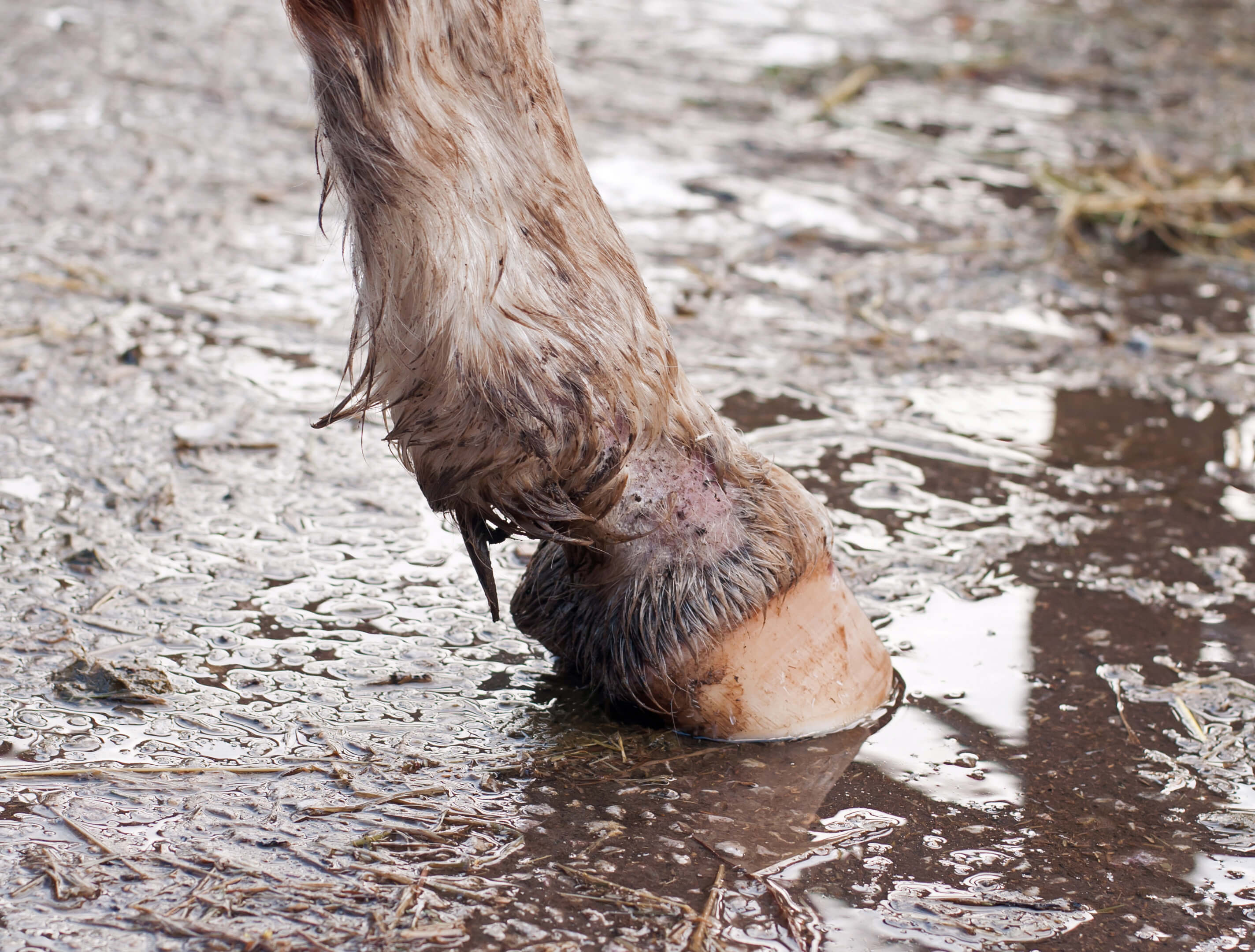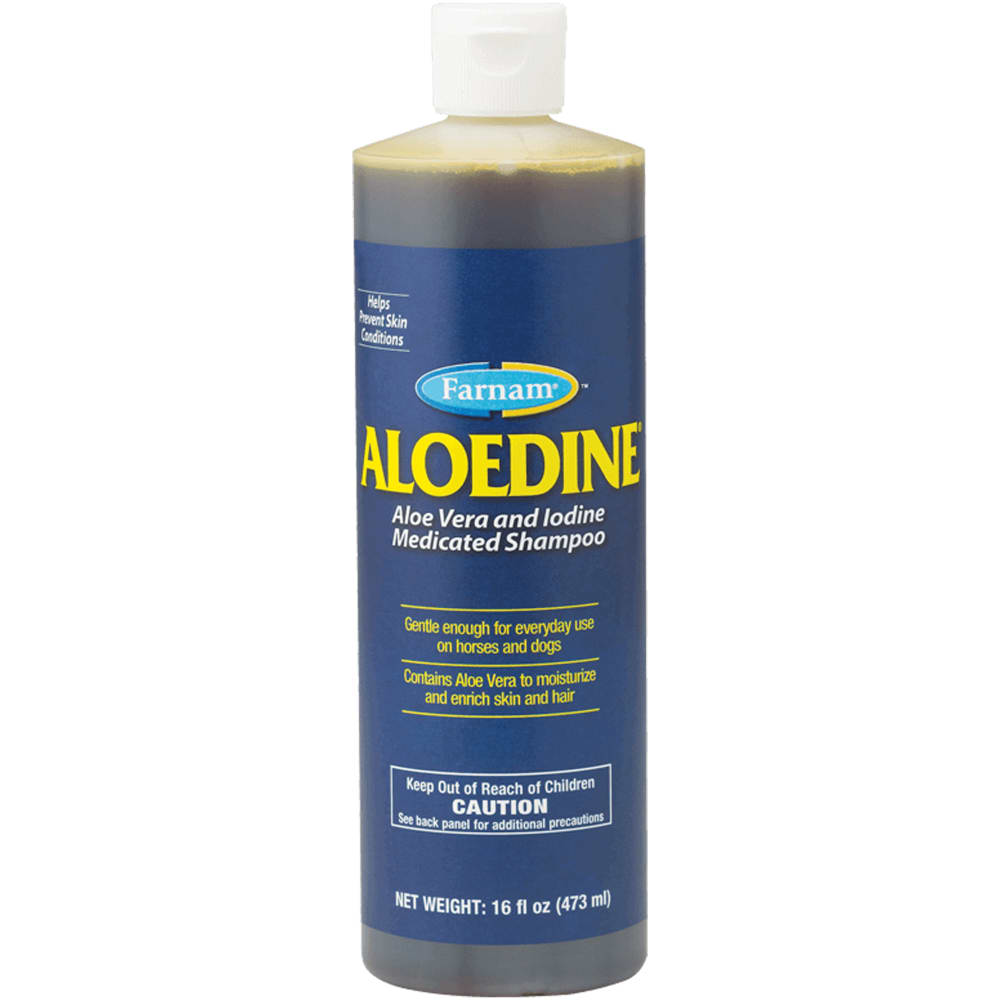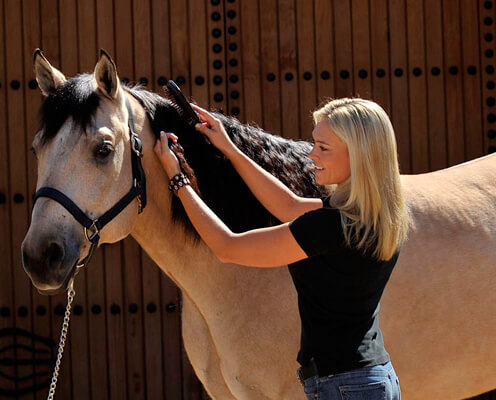Grooming: Skin Issues

One of the most common equine skin concerns is rain rot, also known as rain scald and, sometimes, dew poisoning. The problem takes its name from the fact that it is typically found on horses that aren’t groomed regularly and spend much of their time outdoors. Rain rot is caused by Dermatophilus organisms, which may live in the soil.
Matted hair and scabby lesions or bumps form on the body, often on the neck, back, rump and legs — areas where rain would run off. This may cause pain to the horse, especially when the matted hair and scabs are removed.
Using a medicated shampoo, bathe the horse daily for a week, carefully removing the scabs after the shampoo lather has softened them. Dry these areas afterwards. Severe cases may require veterinary attention and medication.
Attentive routine grooming can prevent rainrot, and is especially important for horses that spend much of their time outdoors.
Medicated shampoos can be very effective when used correctly. But how do you know if a skin issue requires an antifungal shampoo or an antibacterial shampoo?
“Sometimes it’s impossible to tell just by looking at the horse whether the skin problem is fungal or bacterial,” says Carol Clark, DVM, Dipl. ACVIM, an internal medicine specialist at Peterson & Smith Equine Hospital in Ocala, Florida.
You might think, “It’s a shampoo, not rocket science,” but before you get started, take a couple of minutes to read the entire label. This will tell you exactly how long a medicated shampoo should remain on the horse before rinsing in order to do its job. The directions will also note how many days the product should be used for specific skin problems.
“The biggest problem is that people put it on, lather it up and rinse it off,’ says Clark. “These [medicated shampoo] products need to have a minimum of ten minutes of contact time before rinsing thoroughly. But don’t overdo it; you can dry out the skin and remove the protective layers and then have more problems.”
In a training or show barn, skin issues can wreak havoc. Not only are they unsightly, but severe cases can actually interrupt the training process.
Prevent Spread of Skin Issues
In a training or show barn, skin issues can wreak havoc. Not only are they unsightly, but severe cases can actually interrupt the training process.
“Everybody hates skin problems,” says Robbie Harris, who, with his wife Mary, owns Harris Training Center in Morriston, Florida, where young Thoroughbreds are prepared for sales and racing. “Horses don’t look and feel well if they’re trying to itch and rub. If it’s bad enough, you may have to stop training so you can address it, and whether you’re going to the sales or the races, you don’t want to miss any training.”
At Harris Training Center, as in most training barns, precautions are taken to prevent skin issues.
“We change saddle towels and girth covers on every horse, and these get washed every day after use,” says Harris, noting that grooming equipment is also washed each day. “Between sets, we make the riders dip their bridles, including the reins, in a bucket with disinfectant.”
Horses are thoroughly rinsed off every day after training, unless the weather is prohibitively cold. Harris believes that keeping the hair coat as clean as possible is a big help against skin irritations.
If a horse does have a breakout of “the crud,” as Harris calls it, the issue is treated aggressively, and this includes veterinary attention, if necessary. When treating skin problems, and as a preventive measure, Harris uses a shampoo and topical spray that contain antiseptic ingredients to disinfect the surface of the skin.
Life with Horses Newsletter
Sign up now to stay connected with free helpful horse care tips, product updates, and special offers.
Featured Products
Related Articles
Get Grooming: A Regular Routine is Part of Good Horse Keeping
There’s a lot more to grooming than just getting your horse clean. Even if you aren’t riding that day, a thorough grooming session provides quality time for both you and your horse. It’s an excellent way to strengthen your bond with horses you can’t ride, such as those that are too young, recuperating from an injury, retired or infirm...


